The parties attending Thursday's European Political Community (EPC) meeting in Budapest agreed that there should be peace in Europe as soon as possible and that they must respond to the outcome of the US presidential election, Prime Minister Viktor Orbán told a press conference after the meeting, where he also said that migration cannot be stopped unless there is a revolt against the regulations and court rulings currently in force.
"The situation in which we have acted today can best be described as difficult, complex and dangerous," said the Hungarian Prime Minister, stressing that European peace, stability and prosperity were suddenly under threat.
The war that Russia has launched against Ukraine has been going on for almost three years now, the Middle East is in flames and threatens to escalate further, conflicts are destabilising North Africa, illegal migration is a constant challenge that is now surpassing all previous records, while in the global economy we could see the development of blocs and fragmentation on a scale not seen since the Cold War, he stressed.
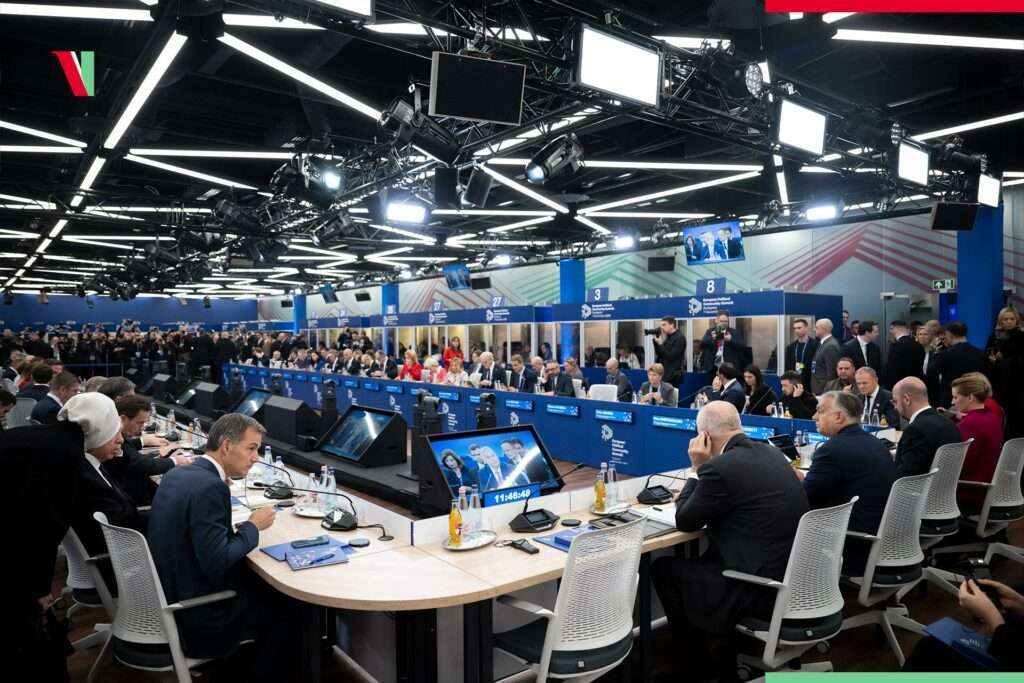
He said that the fifth meeting of the European Political Community, the biggest diplomatic event in Hungary's history, was now underway, with 42 heads of state and government, representatives of European institutions, the Secretary General of NATO and a representative of the Organisation for Security and Cooperation in Europe. He added that they came together because they believe that together they can give better answers to these threats and challenges than one by one.
The Prime Minister said that his personal assessment of the situation is that everyone perceives that there is no time to lose. In his view, "history has clearly accelerated", a chapter has closed as a result of the American elections and the world will change, "faster than we think".
"War or peace, migration or defence, bloc development or interconnection, subordination or European sovereignty," listed the serious issues that he believes are currently on the agenda.
The Hungarian prime minister pointed out that no formal decision had been taken at the meeting and that "quite a few" opposing views had been expressed. He is therefore only able to report on the issues on which there was consensus.
He said that there was a consensus at the meeting that it was necessary to respond to the outcome of the US elections. "We have to realise that big changes are coming," He suggested. According to him, there was also a consensus that there should be peace in Europe as soon as possible and that Europe should take more responsibility for its own peace and security in the future. "We cannot expect" only Americans to 'defend' us," added the Hungarian Prime Minister.
They also agreed that Europe must remain an important actor in the upcoming talks and processes that will decide our future.
These talks will also affect the fate of Europe and Europe must be present with sufficient weight to have a chance to influence the decisions that will be taken later, he asked.
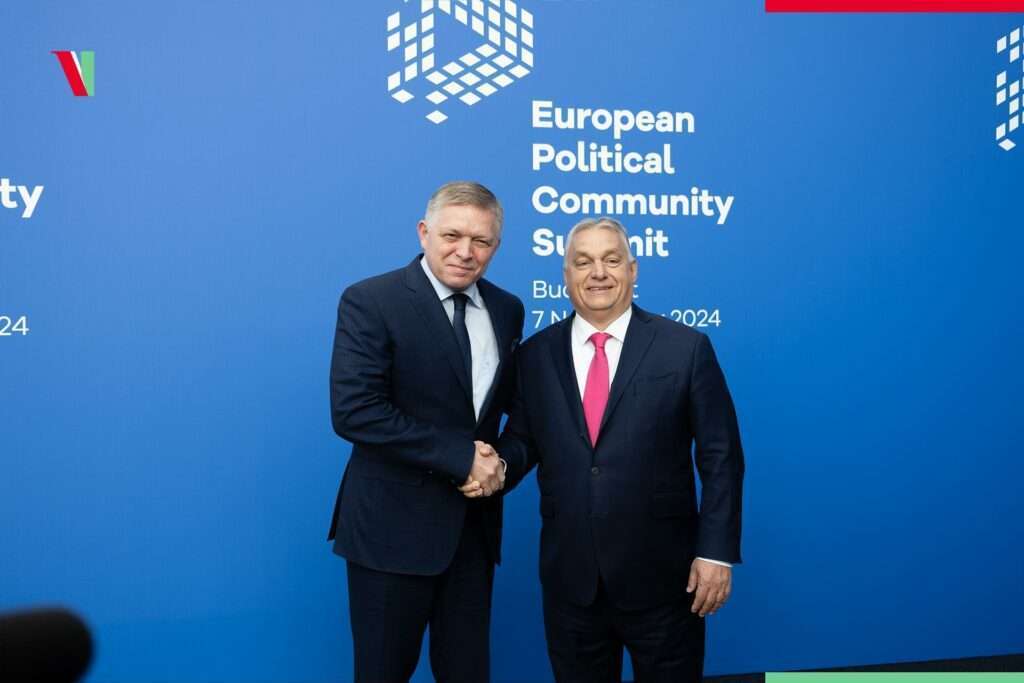
Orbán expressed his conviction that the issue of migration is at the very limits of European institutions. This issue is a major source of tension and stress, everyone is unhappy with the current situation and everyone wants change, he added.
He said that the intention of political leaders to bring about change is facing a major obstacle that needs to be removed, broken down; this obstacle is called "judicial activism".
He said that "we make decisions", governments implement them and our common decisions are first broken down into European and later national court decisions. As a result, the results achieved in curbing migration end up "bursting like bubbles".
The only exception is Hungary, which has always sided with the rebels against judicial activism, he stressed.
The Prime Minister said: "I don't think we can stop migration if we don't rebel against the regulations and court decisions that are currently in place."
He said that in addition to the plenary session, they also held working groups. One working group dealt with economic security, while there was a working group on migration.
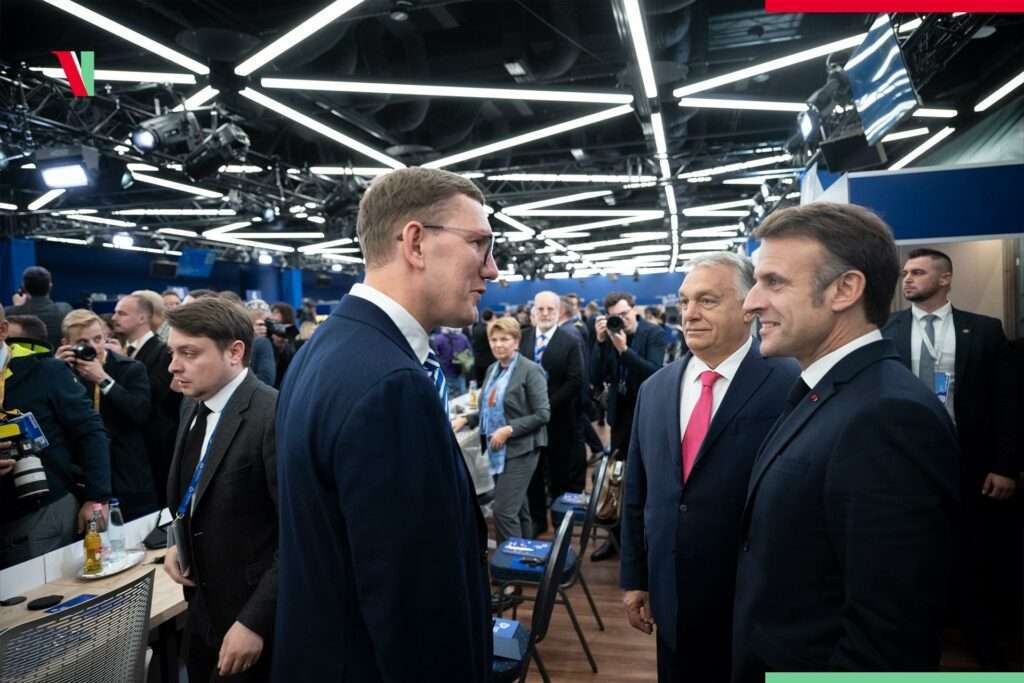
Orbán said that at the meeting they expressed their gratitude to French President Emmanuel Macron, who initiated this form of cooperation two years ago.
The Hungarian prime minister, who held a press conference together with the Albanian prime minister, also stressed that the participants in the talks had concluded that they needed to continue and actually step up their efforts. Therefore, they all agreed to be received by Prime Minister Edi Rama in Tirana, Albania, next May.
Today, it is clear that the pro-peace camp is growing, while with the US elections the pro-peace camp has become huge, Orbán said in response to questions from journalists at a press conference on the European Political Community (EPC) meeting.
On the issue of peace, he said, he had no authority to take a position on which there was not complete agreement, adding that there were differences on the issue of continuation of the war versus a quick ceasefire and peace talks.
"We are not talking about victory and defeat. We are talking about a ceasefire, about human lives, about stopping the destruction," he said, stressing that Europe must respond to the new situation that will arise after the US elections.
This is not going to happen overnight, but today we have taken an important step towards finding an answer that is acceptable to all 27 EU Member States, he said, adding that an informal dinner with the participation of 27 European leaders will be held after the European Human Rights Council summit, while Friday's EU summit will be another opportunity to take further steps towards finding a common answer.
In connection with the war, the Hungarian Prime Minister quoted the old Hungarian proverb that "old sins cast long shadows". In his opinion, this is also true from an intellectual point of view, which means that if someone starts to act without the necessary intellectual input, he will have to pay for it sooner or later.
He said that the essence of war is victory or defeat; but Europeans engaged in war without being clear about what victory entailed. If victory has no definition, how do you know how long to fight, he asked the question. "We never made it clear: Should we take back Crimea too? Sevastopol under the NATO flag? Moscow? What constitutes victory?" he said, adding that since these questions had not been answered in advance, it was difficult to stop them.
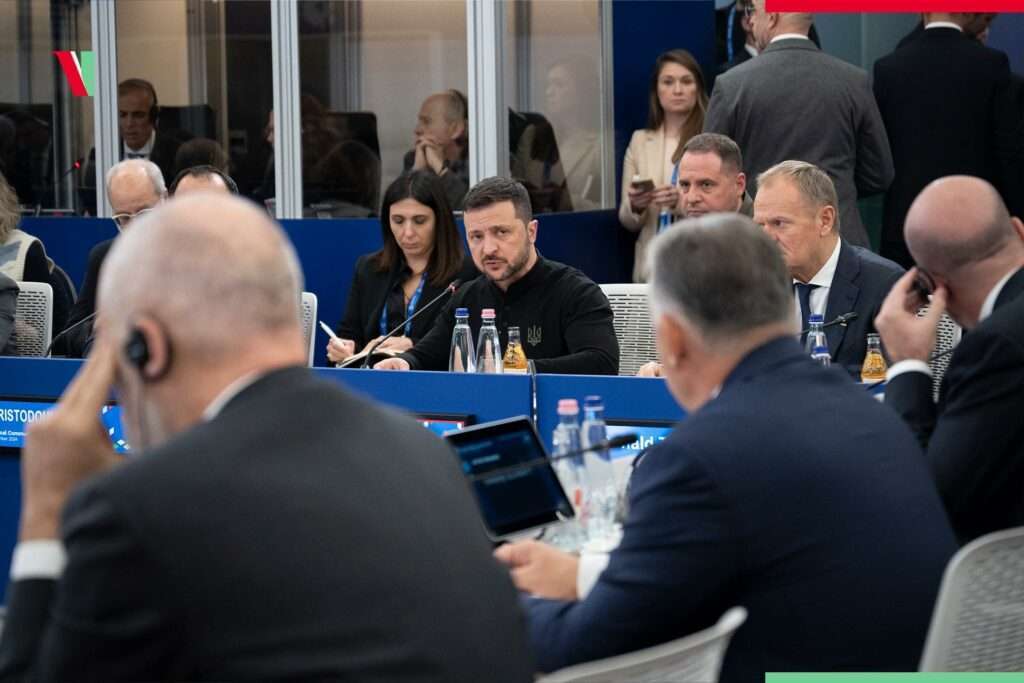
He warned that this intellectual work could not be spared, "we must go back to the beginning" and ask ourselves what expected results they wanted to achieve. He expressed the hope that by Friday evening they would be closer to completing the work they had failed to complete than they were this morning.
When asked whether Russian President Putin is in the pro-peace or pro-war camp, he replied that they are now discussing the Western position, the NATO position, not the Russian position - who is for peace and who is for war. This debate is exclusively about the Western community, not about the Russians; that is not part of this work, he stressed.
He described the ceasefire as the first step because, in his opinion, it is necessary to establish communication, which is a prerequisite for concluding a peace agreement.
Orbán expressed concern about the fact that if there is too much talk about a long-term peace solution, the chances of a ceasefire will diminish. "They need to stop killing now, that's my recommendation." he asked a question.
Regarding the EUR 50 billion loan to Ukraine, which should be co-financed by the European Union and the United States, he said that if the United States refuses to participate in the financing of this instrument in the future, how will Europe take care of this itself and whether it is ready to do so at all.
Moreover, this amount will probably not be enough, there will be other requests for funding and the question will arise as to who will finance them and from what, which countries will be willing to invest more, he pointed out.
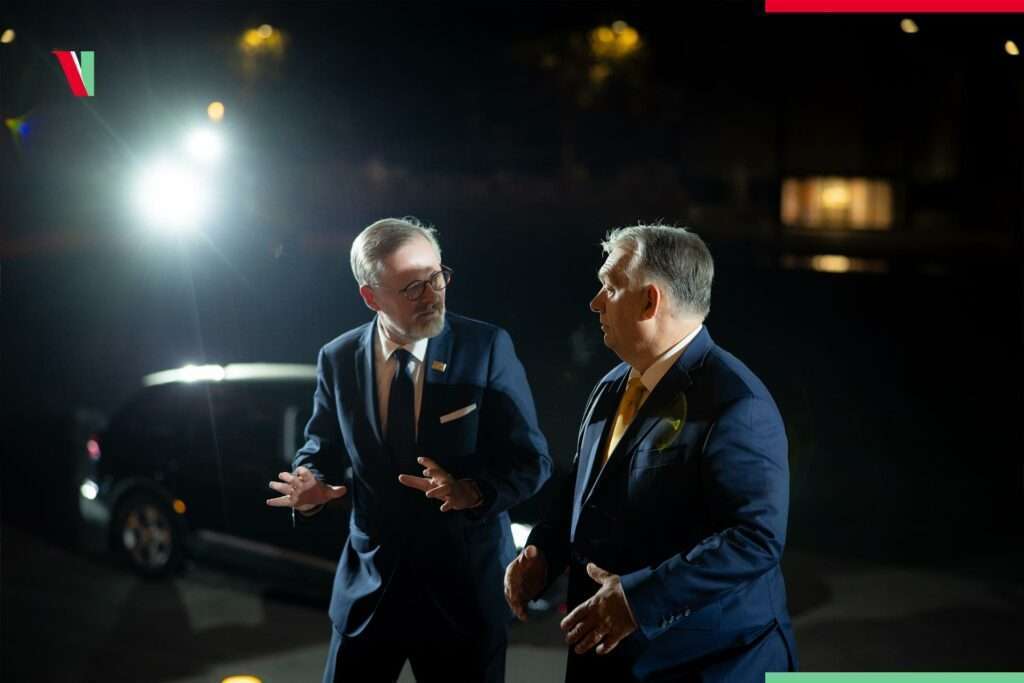
He also noted that the Europeans want less and less to finance a war that they do not understand; they do not understand its objective, how long it will last and whether sanctions will prove successful.
In response to a question, Orbán also stressed that the outcome of the peace talks would determine not only the future of Ukraine. It will also determine the new European security architecture. "If Europeans want to engage in talks about building a European security architecture, it is important that we communicate with all sides of the war, otherwise someone else will do it," he stressed.
Regarding US-Hungarian relations, he said that many things have gone wrong in this sector over the last four years, and Hungary has been forced to suffer discrimination in many areas. "Correcting these ills will be the first issue of our cooperation with the new administration, and we also have plans of an economic nature, which I will discuss in due course," he said.
Regarding the relationship with Donald Trump, the Prime Minister said that it was undoubtedly a great opportunity for Hungary to have a close alliance with the United States as never before. "It offers us opportunities that we will take advantage of," stressed, adding that he was always proud to have the opportunity to fight alongside people who wanted to enforce the will of the people against the power elite of the time. This is called democracy, he questioned.
On trade issues, he also said that US President Donald Trump "is a very tough negotiating partner" and therefore, he said, "no one should be under any illusions" as there will be difficult negotiations with the United States on the future trade structure.

Asked whether he would drink champagne on Thursday evening in the company of 26 European leaders after Donald Trump's victory, he replied that he would only partially keep his earlier promise to that effect. He would uncork a few bottles of champagne; however, as he was in Kyrgyzstan at the time of the presidential election and the customs there are different, they "toasted" each other with a stock of vodka and shared the joy of a fantastic result, he noted.
Regarding illegal migration, Orbán recalled that when the migration crisis began in 2015, the first thing the Hungarian government did was to revolt. "We built a fence at a time when it was considered a original sin," he said, adding that other countries have built fences since then, but it is no longer considered a sin.
Hungary then introduced a system that is the only solution to migration, namely that no one is allowed to enter the country until their application has been assessed, he recalled, stressing that he had not heard a single proposal - apart from the Hungarian model - that offered a real solution to the problem in the last ten years.
Today, however, legislation makes the situation more difficult. For example, the European Court of Justice ruled against Hungary for the only solution that offers real protection, he said, expressing criticism. He pointed out that Hungary is not just protecting its own borders, but the whole of Europe, and will not let anyone in from now on either.
He stressed that there is no solution today other than for many countries to rebel against the current bureaucratic, jungle-like regulations and judicial activism. But until this revolt becomes Europe-wide, nothing will work, he noted.
"I am the only prime minister in all of Europe who has survived the migration crisis since 2015. And that's for one reason, and that's because I've always stayed on the side of the people." he reminded.
In his words, this means security, border protection and protecting the sense of home in one's own country. He warned that those who do otherwise will not succeed.
In response to another question on whether his aim was to remove the system of checks and balances in relation to illegal migration and whether he intended to limit the powers of the judiciary, he said that we have laws enacted under the Constitution and we are following the national legal path in relation to migration.
The European Commission has also taken Hungary to the European Court of Justice. They decided that what we did was wrong, not good, so we have to pay and we have to change our laws. If we changed the laws without changing the constitution, we would be going against it, which we cannot do, he explained.
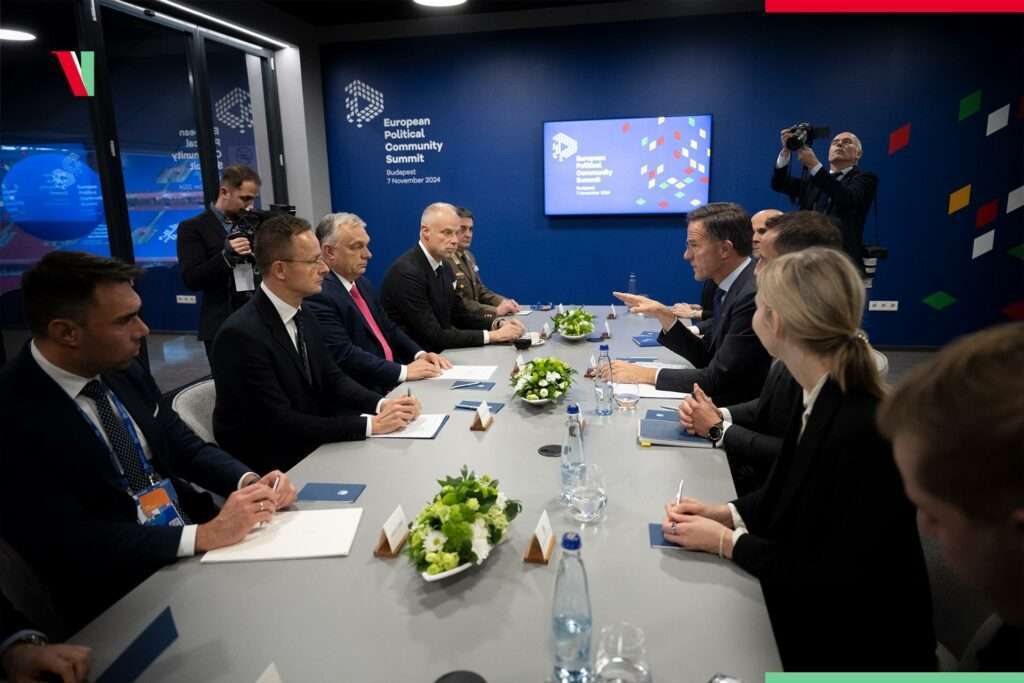
He warned that a change to the Constitution in the context of migration is not possible. This is what he meant when he said that it is a catch-22 situation, and this is what he called judicial activism, Orbán argued, holding that the same situation exists in Italy.
In his view, national governments have been paralysed in the context of migration by the fact that national courts have been guided by the judgments of the European Court of Justice and not by national law. He said it was clear that in almost every country the majority of people rejected illegal immigration. He also pointed out that national governments were unable to enforce the will of the people. The situation is complex, not as simple as there being a system of checks and balances. It is a question of European sovereignty and over-regulation that takes decision-making away from the national level and elevates it to the European level, he stressed.
miniszterelnok/ gnews - RoZ
PHOTO - Facebook Viktor Orbán



